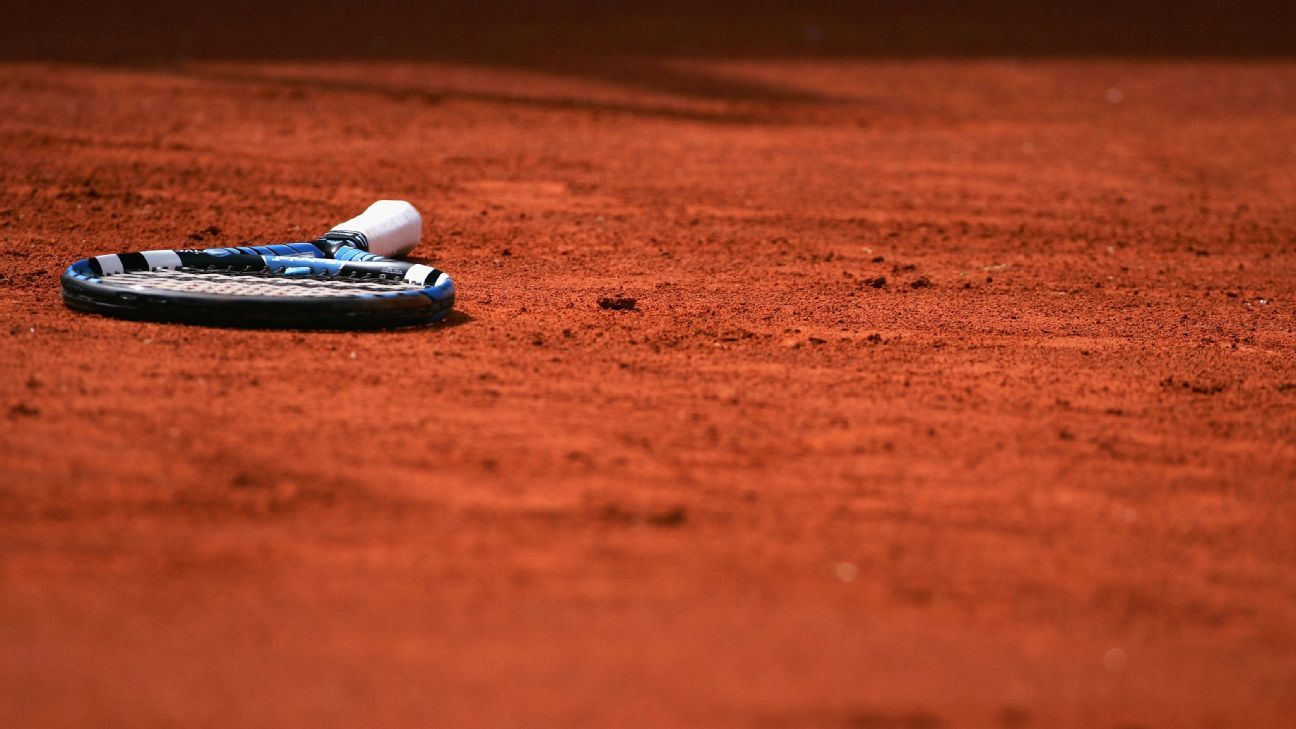Anti-corruption officials in tennis are bracing for a potential uptick in match-fixing alerts when the official tours restart later this summer due to the significant number of formal reports of “suspicious matches” that came to the attention of the Tennis Integrity Unit during the lockdown triggered by the coronavirus pandemic.
“We anticipate a heightened sense of integrity concerns when the tours resume, especially at the lower levels [Challenger and ITF World Tour events],” Mark Harrison, head of communications for the TIU, told ESPN on Tuesday. “There will be a renewed level of gambling, and a small percentage of that may involve corrupt gambling. That’s why we made a [recent] statement that there continues to be suspicious activity.”
Last Friday, the TIU reported that regulated betting operators had reported 24 suspicious matches for the second quarter of the year. Such reports are not outright claims of match-fixing but alerts to suspicious betting patterns and/or activity. That was despite the lack of tour play since the coronavirus outbreak caused the official game to shut down in mid-March. The number concerns anti-corruption officials because there were only 33 reports of suspicious matches in the same quarter in 2019, when both the ATP and WTA, along with the minor league circuit operated by the ITF, were in full swing.
“This was not a huge spike in activity,” Harrison said of the most recent reports. “But there also was a great deal less tennis being played.”
The 24 alerts issued for this last quarter all stemmed from events created and staged while the ATP and WTA have been idle. As the events that have been created and played over the past four months are not part of the official game, they do not come under the jurisdiction of the TIU. But the agency was monitoring them because, Harrison said, “It’s good to have a feeling for the whole integrity picture.”
One of the main sources of concern for anti-corruption officials is the economic stress that players, especially less successful ones, are facing in these uncertain times.
“The tours being closed down means that some people may have been vulnerable [to corruption] because their earnings have been restricted or curtailed,” Harrison said, adding, “And gamblers and corrupters won’t go away.”
While the TIU has no jurisdiction over exhibitions and other special events or tournaments that exist outside the ATP, WTA and ITF game, players are covered at all times by the anti-corruption rules they must agree to in order to compete in the official game. While the TIU has no jurisdiction over non-tour events, players are still subject to the same punitive measures should they be found guilty of anti-corruption violations.
One of the TIU’s main concerns has been that recent pop-up events, because they are outside the purview of the TIU, haven’t embraced or adopted the safeguards against corruption that tour events, including the Grand Slams, observe and enforce. Those include precautions like player advisories and monitoring accreditation and security to prevent activities like “courtsiding,” which involves sending information directly via text from the court while a match is in progress, thus enabling the recipient to know the outcome of a point before it is formally reported on an Internet site.
Tournaments earn significant revenue by selling data to providers who, in turn, charge betting operators for access to that data, including point-by-point “live scoring” that services bettors. Match-fixing hurts both tournaments and the credibility of betting operators, so they work hand-in-hand to report suspicious activity to the TIU.
“There has been a massive range of different events over this three-month period, and that’s great for the players and the people involved in the sport,” Harrison said. “We have no issue with that; we encourage and welcome it. But we also need to keep an eye on the integrity side of things.”
